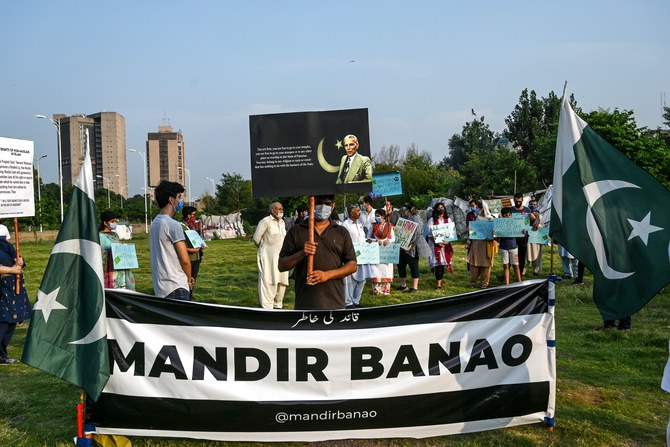ISLAMABAD: Pakistan's Council of Islamic Ideology on Wednesday cited a 70-year-old agreement between India and Pakistan while responding to an official query regarding the construction of a Hindu temple in Islamabad at state expense.
A constitutional body responsible for providing legal advice on religious matters to the government, the council maintained that the state had not funded private places of worship in the past.
However, it noted that it could financially support minority religious communities since its members were citizens of Pakistan, adding that the community leaders could then decide how they wanted to use the allocated funds.
Apart from the Islamic injunctions and the constitution of the country, the council made its decision in light of the Liaquat-Nehru Pact that was signed in New Delhi by the first Pakistani and Indian prime ministers, Liaquat Ali Khan and Jawaharlal Nehru, in April 1950 to secure the rights of religious minorities in the newly independent states.
The council also recommended the government to let Hindus use an old temple in Saidpur Village, located in the heart of the federal capital, for the purpose of worship and ensure that it remained accessible to the religious community.
Apart from that, it endorsed the community’s request to set up a cremation facility and community center to make sure its members freely performed their religious rituals.
The controversy surrounding the construction of the temple in Islamabad began after Hindus performed the ground-breaking ceremony to build a new place of worship in June.
People belonging to conservative social segments objected to the construction work, and some of them even demolished the boundary wall of the temple.
In the ensuing debate, some people objected to the government's plan to fund the project. Subsequently, the country’s religious affairs ministry referred the matter to the council in July, seeking its advice over the issue.



















